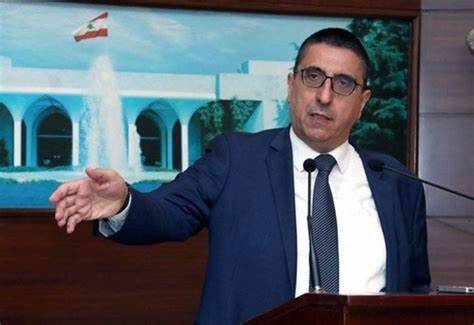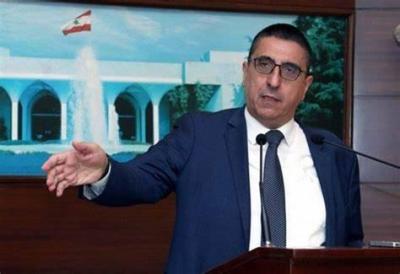Minister of Social Affairs Hector Hajjar stated that "the Syrians in Lebanon are diverse groups. Some came during the war in Syria, fleeing from military and security situations, numbering around 800,000, thus fitting the definition of displacement. Others have been entering and continue to flow into Lebanon illegally, either for work, believing Lebanon to be an economic and financial paradise, or to launch again towards Europe. Additionally, there are those who have been in Lebanon since before the outbreak of the Syrian war. Therefore, it is incorrect to claim that all Syrian groups in Lebanon are displaced persons requiring protection under international law."
Hajjar highlighted in an interview with "Al-Anbaa" that "the greater problem lies in the international community's handling of the Syrian presence in Lebanon, as it does not differentiate between genuine refugees, workers, and illegal entrants. They treat them all as displaced persons deserving shelter and financial aid, a situation resulting from the Lebanese government's failure since the beginning of the Syrian war in 2011 to manage this file effectively and distinguish between the different categories."
He pointed out that "President Mikati is diplomatic in his statements and possesses enough dynamism and wisdom to indicate the need for solutions to this contentious issue. However, the problem resides elsewhere; that is, not linking what President Mikati says to a practical course of action that embodies both speed and precision. We face an emergency crisis that requires urgent management before we lose more lives like that of Pascal Suleiman and Lebanon subsequently ends up in the dragon's mouth, where regret would be too late."
He added, "Decorative language and beautiful poetry about displacement do not yield the desired results. What is required, before it is too late, is an executive plan that addresses this file threatening the security of Lebanon and its people. Three weeks ago, I personally submitted a comprehensive working paper to the ministerial committee concerned with Syrian displacement, which aims in its first phase to identify the location and nature of every Syrian residing on Lebanese territory. However, to date, there has been much talk with little implementation."
He mentioned that he publicly declared his readiness to mobilize all the resources of the Ministry of Social Affairs, in coordination with the Ministry of Interior, especially the General Security, in collaboration with hundreds of university student volunteers, to serve this paper to ensure its successful execution as a sovereign state defending its land, people, and resources. Furthermore, the second phase of the paper involves a governmental approach to European Union countries and the UN High Commissioner for Refugees, asking them to stop providing financial assistance to the Syrians who, based on the results of the first phase, are identified as residing illegally and do not qualify as displaced persons."
He continued, "We are aware of an international conspiracy against Lebanon and the region, especially as there are those in Europe and elsewhere striving to alter the identity, borders, and demographics of the region. However, what these individuals overlook is that we are the rightful owners of this land, and we will protect it with all our strength and steadfastness. Thus, the new 'Sykes-Pico' they are plotting for Lebanon could backfire tremendously on them, particularly since the winds of extremism and racism in Europe are rising sharply, and the far-right may soon gain closer control of power due to uncalculated, if not foolish, policies."
In response to a question, Hajjar affirmed that certain leaders in decision-making countries have attempted, through Palestinian immigration, to change Lebanon's identity and demographics, but the only outcome of their project has been failure. He insisted that, with the determination and will of the honorable people in Lebanon, they will fail once again in their attempts to revive this project alongside the Syrian presence on Lebanese territory. He emphasized that all Lebanese agree that the Syrian presence will not only erase the presence of Christians in Lebanon but will obliterate all of Lebanon as a state, entity, and identity. Therefore, it is in everyone's interest to handle this file wisely, with a sovereign national perspective, distanced from sectarian and confessional details. Consequently, anyone among the Lebanese who considers all the Syrian groups present in Lebanon as displaced persons is guilty and complicit against the Lebanese state.




